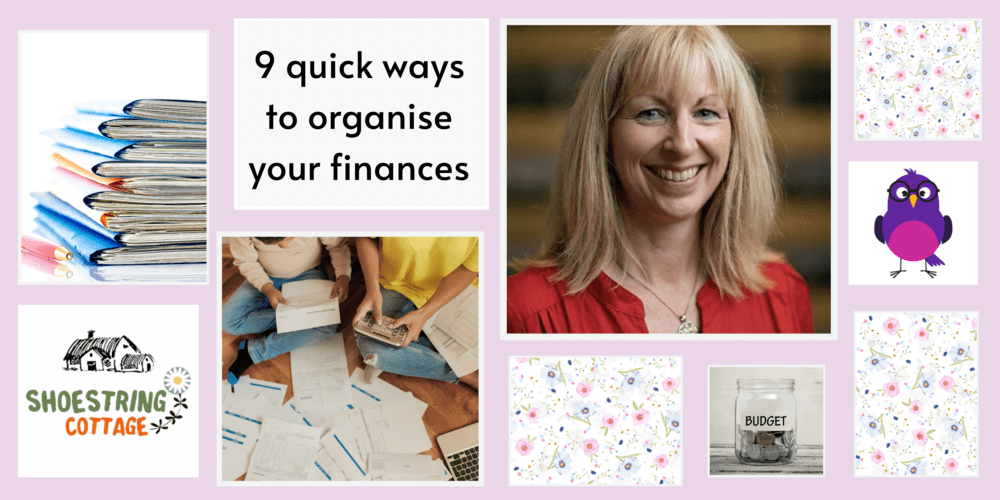Jasmine Birtles
Your money-making expert. Financial journalist, TV and radio personality.


Welcome to the Frugal Column, where I aim to inspire you to live your best life without breaking the bank. You can follow my award-winning blog Shoestring Cottage and don’t forget to subscribe to my YouTube channel. I am also the author of Extreme Frugality: Save Money Like Your Grandma.
Do you ever feel that you are out of control with your money? If you never know how much you have or what’s coming and going you probably already know that it’s time to organise your finances. But you don’t have to do it in one go. Sometimes breaking a daunting task into bite-size pieces can make it feel much more manageable. Here are some quick ideas to help you organise your finances.
Keeping paper receipts can be helpful to track your spending, at least to begin with. However, to stop you getting overwhelmed by them, keep paper receipts in a particular place. A small box by your front door where you can throw them as you arrive home is a good idea.
I talk more in-depth about how to use your receipts to help track your spending here.
Similarly, having all your bills, statements, invoices, payslips and other important documents in one place with files for each category will help you locate them when needed.
Invest in some A4 manilla wallets and label each one. They can be kept in a filing cabinet, on a bookshelf or stored in a plastic box under the bed!
Making a budget doesn’t have to be complicated. It’s really a question of making a list of your income and outgoings and having a plan for what’s left over. Find a budget book, spreadsheet or app that works for you. The easier you make it to use, the more likely you are to stick to your plan.
As well as knowing your weekly and monthly expenses, write a list of annual outgoings. Total them up, divide them by 12 and put that amount aside each month so you have enough when it is time to pay.
Annual expenses might include your car MOT costs, boiler service, car breakdown cover, insurances that aren’t paid monthly, ground rent and service charges on your property, memberships for professional organisations, pet vaccinations, etc.
Check in with your current account regularly, to see what you are spending and how much money you have left.
Perhaps this task could be the first thing you do on your lunchbreak, on the bus or train, or before you sit down to watch TV in the evening.
Choose to pay monthly by Direct Debit or standing orders wherever possible, so your bills don’t get forgotten or begin to pile up.
An easy way to organise your finances is to use a bank account that allows you to separate your money into different spending pots.
You could arrange to automatically put money into a Christmas pot, a holiday pot, an annual expenses pot, etc. Online accounts such as Monzo also send you instant notifications of your spending and any payments that are made to you to keep you on top of your finances.
It’s a bit like a digital version of using the cash envelope system, preferred by money bloggers like Nicola at the Frugal Cottage.
Take the time to cancel subscriptions you don’t use or can no longer afford. This could include meal prep kits, magazines and journals, gym and sports memberships, audio books, etc.
Terrifying as it may seem, writing down and totalling up all of your debts is the first step to resolving them. When you see the totality in black and white, you can begin to come up with a plan to repay your debt.
You don’t have to deal with debt alone. Get help and advice from organisations such as Money Helper or National Debtline.
Even if you think you are on top of debt repayments, it is easy to pay the minimum monthly sums for years and fork out a lot of interest as a result. A more-organised approach could help you pay what you owe more quickly and save you money in the longer term.
Even if you only spend an hour on each task, you will soon feel more in control as you start to organise your finances more effectively. What clever moves have helped you get on top of your money?
